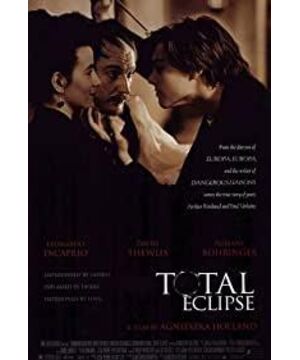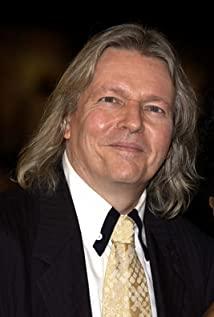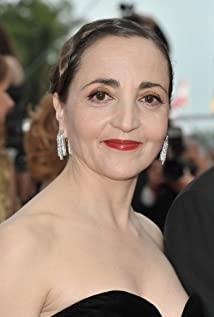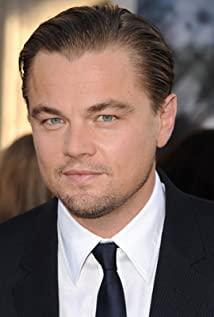There are three places in the film that keep me thinking about it. In the first scene, the two have a profound discussion on the subject of soul and lust. Verlaine's slightly cunning self-defense paled under Rimbaud's razor-sharp words, with no resistance, and sparks of wisdom popping everywhere, which was really enjoyable. , Verlaine: I think it's less important to love
the soul. After all, the soul may be immortal. We have plenty of time for the soul... but flesh rots.
Time to love, but the body... rots. The dialogue that followed was absolutely amazing.
Verlaine: It's my love of flesh which keeps me faithful
.
Rimbaud: Faithful. What do you mean? Rimbaud: Faithful
. What's the meaning?
- I'm faithful to all my lovers... because once I love them... I will always love them... and when I'm alone in the evening... or in the early morning... I close my eyes... and I celebrate them all.
I am loyal to all lovers, and once I have loved, I will love forever. When I am alone in the evening or early morning, I close my eyes and praise people.
- That's not faithfulness. That's nostalgia. If you don't want to leave Mathilde... it's not because you're faithful. It's because you're weak.
That's not faithfulness, it's nostalgia. You are not loyal to want to leave Mathilde, you are weak.
- If strength involves brutality, I prefer to be weak
.
- With you, weakness involves brutality as well.
(long silence) Don't expect me to be faithful to you.
But your weakness is also brutality. (Silence) Don't expect me to be loyal to you.
- Why are you so harsh with me? Why are you so
harsh with me?
- Because you need it.
Because you are cheap.
Rimbaud's sharp eyes piercing the soul, perhaps there is a hint of sadness in Verlaine's undisguised pungency.
The lover is imperfect, the lover is cowardly, and the lover has two ends in the choice between comfort and madness, richness and excitement, one side is the young and charming body of the wife, and a rich and decent life; the other side is the young lover's passionate body, wild and wanton. Wandering life, and the thrill of genius thoughts colliding like lightning bolts, a middle-aged man who is not determined enough, wants to seize everything, "Yet each man kills the thing he loves...some do it with a bitter look, some with a flattering look", but this time, his hesitation? Maybe he had hurt his sensitive lover.
In the second act, the two act like children, trying to find the mark of love on each other.
Isn't it enough for you to know... that I love you more than I've ever loved anyone... and that I will always love you
? I will love you forever and ever.
- Shut up, you sniveling drunk
.
- Tell me that you love me
.
- For God's sake!
Omg.
- Please. Please.
It's important. It's important to me.
Just say it. (long silence)
- You know I'm very fond of you.
Do you love me?
- What?
- Do you love me?
- Yes.
- Then put your hand on the table. - What
? Cruelly stabbed in the palm. In Verlaine's wailing and blood, Rimbaud spit out a beautiful sentence: The only unbearable thing is that nothing is unbearable. Seeing this scene, I have been thinking about what Rimbaud was thinking when he stabbed his lover's palm Woolen cloth? You say you love me, love me very much, do you really love me, in fact, you don't love me as much as you think. I will use blood and pain to pay tribute to our most splendid love at this moment. Carve a deep scar on your palm, build a monument for love in the slowly passing years, don't forget me, if you forget me, this scar is the best irony for your ridiculous love. Your so-called love is nothing more than that. Maybe he thought so, maybe not. In the last scene of the film, after Rimbaud's death, Verlaine asked for two glasses of absinthe in the small bar, and pushed one in front of him, imagining that the unruly, wind-like boy reappeared, and the corners of his stubborn lips pursed slightly. Get up, drink it up. Then he asked: "Do you love me, do you love me...stretch out your hand." Verlaine stretched out his right hand, and the young man picked up a small knife and gently stroked it in the palm of his hand, provoking the silver on his ring finger. He made a wedding ring, and then kissed it tenderly. The roots of his golden hair fell on the palm of his hand, showing a beautiful luster... Verlaine, who had unkempt hair, came back to his senses, only to find that he was old, and the youth of that year was already old. After death, only the scar is silently imprinted on the palm of the hand, and the memory shines in the depths of the mind. That kind of love is enough to lick the wound for a lifetime.
It is impossible to meet again, it is impossible to meet such a person, such a thing, and such a young self...
Seeing this, tears flowed down.
A movie of less than an hour and 20 minutes seems like a lifetime away.
Because of this movie, I fell in love with Rimbaud and fell in love with love.
View more about Total Eclipse reviews











